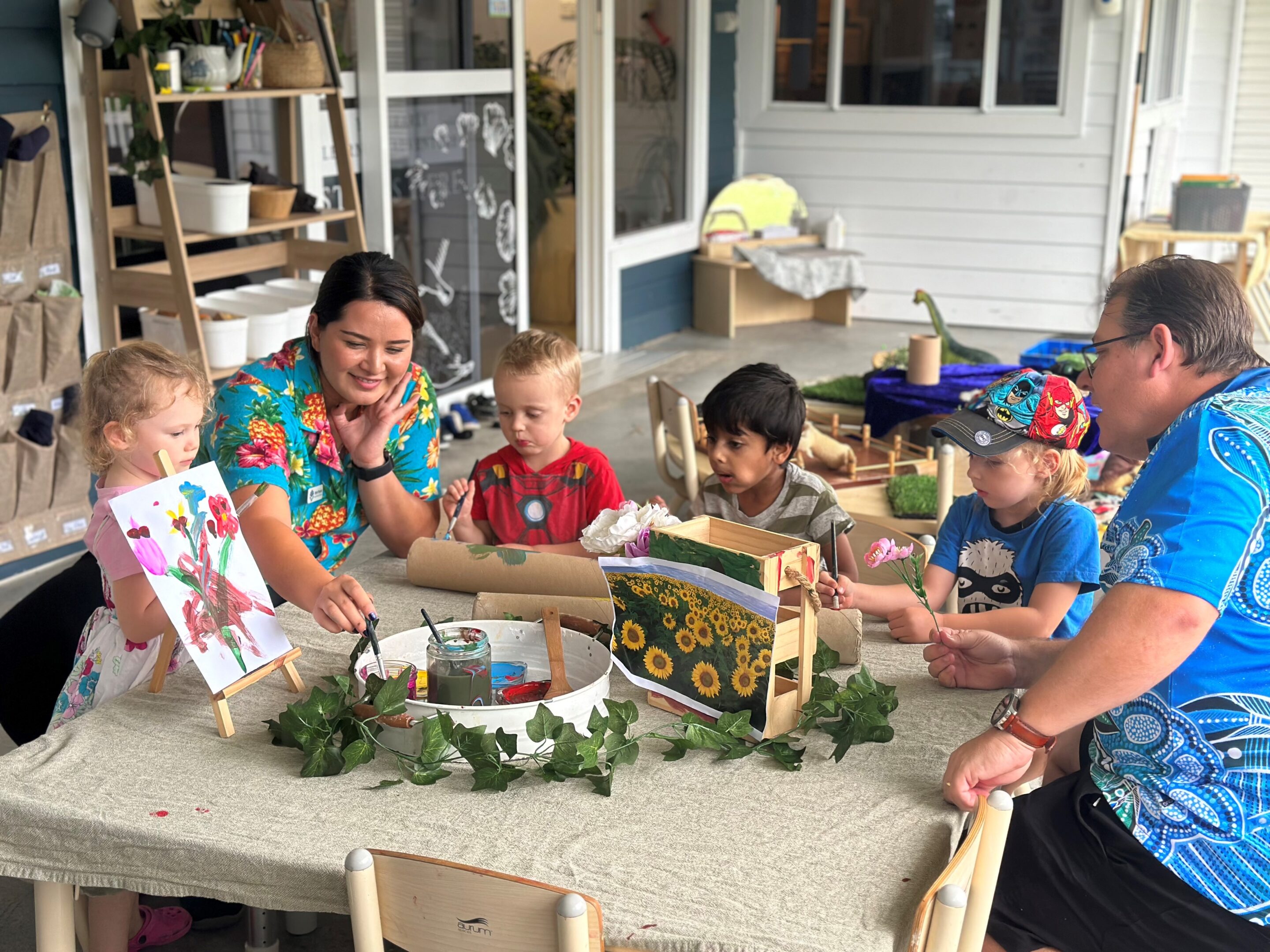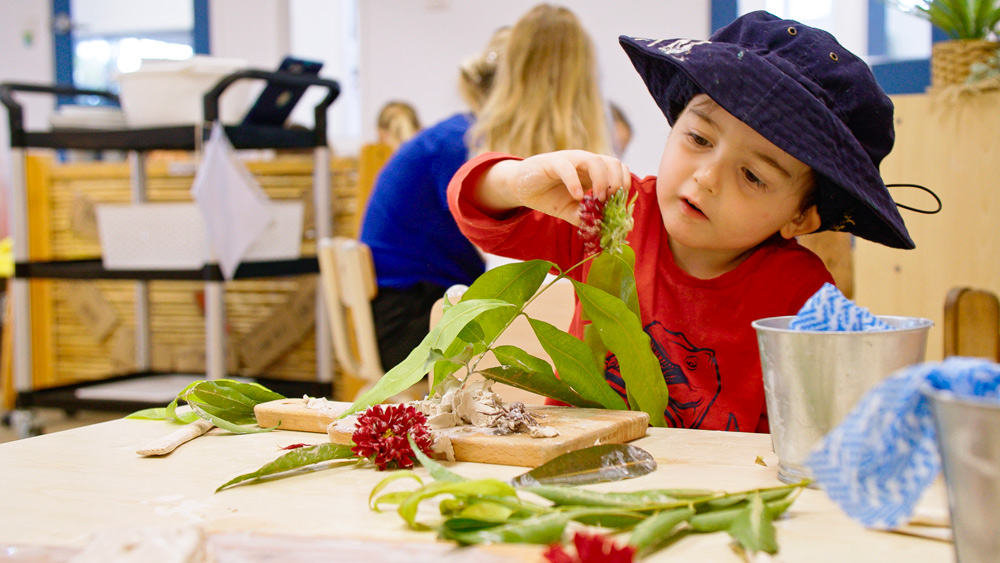“Bonding is about creating a relationship with your baby and reassuring them that they are safe and secure,” says Caroline MacFarlane, Centre Director of Sanctuary’s Mermaid Waters centre. “This supports them to bond with others and lays the foundation for development and early learning.”
According to the World Health Organization, two fundamental qualities determine a parent’s ability to provide effective care: sensitivity and responsiveness to their child. Being able to detect a baby’s needs and respond appropriately, is the number one way to develop a secure attachment and ensure their healthy development. This means learning to recognise and interpret their cues and adapting to provide what they need.
“Babies communicate from the day they are born,” says Caroline. Your baby might communicate with you in her first few months by crying (using different cries for different needs), cooing and squealing, eye contact, smiling and grimacing, and body movements, such as kicking her legs in excitement.
Observing a baby’s cues and modifying your touch, eye contact and voice to suit the responses is much like having a ‘conversation’ with your baby. Researchers call these types of interactions ‘serve and return’ and believe they form the basis of brain, cognitive and social development.
Here’s how you can strengthen your bond with bub in the weeks and months after birth:
1. Cuddles & healthy touch
“Just sitting with your baby, being with her, cuddling her, letting her know that she is safe and secure— these are some of the most important ways to bond with your newborn,” Caroline explains. “You can never cuddle a baby too much! Babies aren’t neurologically developed to cry for attention, they cry because they need support and a sense of security. Cuddle your baby all you like — it will only benefit them in the long run.”
Touch is a vital part of baby’s development. It helps to regulate their heart rate and breathing, promotes healthy weight gain and plays a role in cognitive and social development. Bath time, nappy changes, bedtime, feeding and floor time are all great opportunities to experiment with healthy touch and see what your baby likes. A little massage on the legs or gentle stroking on the back can enhance your bond (and will give you both a rush of oxytocin, the ‘love’ hormone that is released through soothing physical contact).
2. Eye contact
Research shows that eye contact is vital for maternal-child attachment and a child’s social and emotional development. Offer your baby lots of eye contact, but don’t worry if at first, they can only hold your gaze for a few moments — as she develops this skill, she’ll use eye contact more and more to share important information with you.
“In our nursery, whenever the babies are on the floor, I make sure that Educators sit on the floor with the babies. This enables them to truly connect with the babies and be at their eye level,” Caroline adds. “It’s very daunting [for the babies] if you have adults standing up and walking around them all the time, we spend a lot of time at their level building trusting relationships, which supports them to feel secure enough to explore their environment”
3. Talk, sing & tell stories
Infant-directed speech (IDS) — that sing-song voice with a higher pitch and longer vowels that people subconsciously use with babies — aids language acquisition, and helps babies develop their attention and focus, as well as aspects of social development.
Studies have revealed that singing to infants can reduce crying, help them sleep through the night, increase bonding and reduce maternal stress. One clinical trial found that premature infants in an intensive care unit, who were exposed to lullabies showed improved heart and respiratory rates, better sleep and feeding patters and better weight gain.
“Babies love it when you talk and sing to them,” affirms Caroline. “I used to take a rug outside and lay down with the babies and watch the wind blow the trees. I’d be right next to them, talking to them about what we could see and hear, and they’d be soothed because they could hear my voice, while interacting with the natural environment.”
When to ask for help
If you don’t feel an immediate bond with your baby, you’re not alone. The most important thing, Caroline says, is to confide in someone you trust and seek support sooner, rather than later. “Those first weeks are so important — early intervention is best,” she explains.
Friends and family, midwives, maternal, child and family health nurses or your GP can be great sources of support. Beyond Blue also has a variety of resources available online for expectant and new parents, including a guide to emotional health and wellbeing and a two-minute mental health checklist for mums to help you get a better sense of how you’re feeling.






